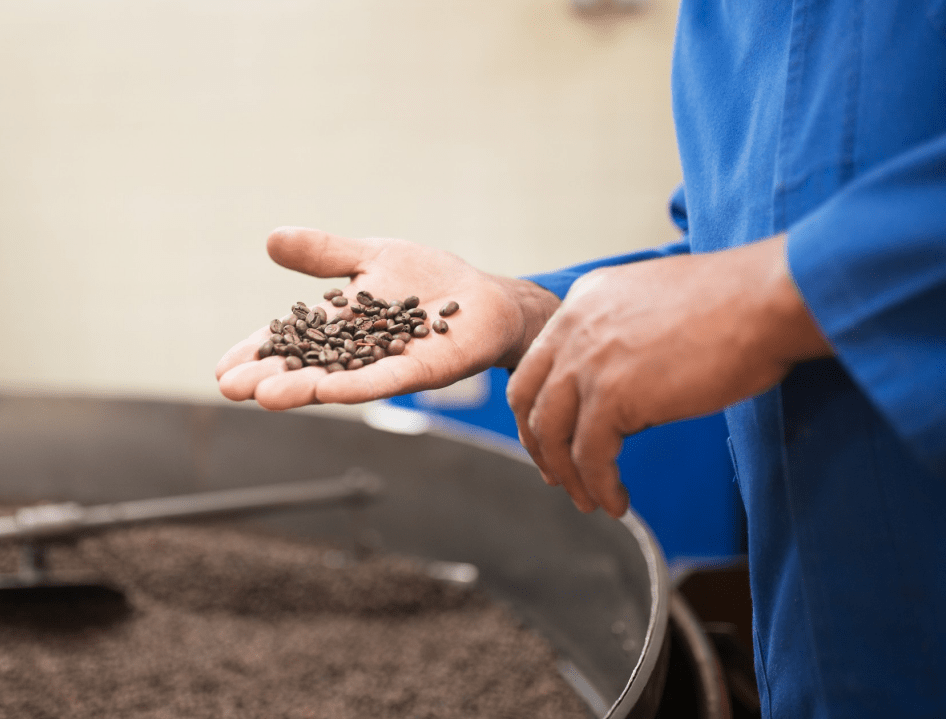What’s So Special About Ethiopian Coffee?
Ethiopian coffee is world-renowned for its distinctive flavor, rich history, and cultural traditions. This article explores what sets it apart by examining its unique taste, the heritage behind its cultivation, and the specialized brewing methods that highlight its qualities. By understanding these aspects, coffee lovers can appreciate the complexity of every cup while supporting sustainable practices that benefit Ethiopian coffee farmers.
What Makes Ethiopian Coffee’s Flavor Profile Unique?
Ethiopian coffee is celebrated for its vibrant, layered tasting notes. Its complexity arises from the region’s natural environment and time-honored processing methods. Grown at high altitudes in fertile volcanic soil, the beans absorb nutrients that lend them bright acidity and a subtle sweetness. Natural fermentation processes further develop flavors ranging from jasmine and bergamot to blueberry and lemon, making each cup a multi-dimensional sensory experience.
The coffee is marked by citrus, blueberry, and floral hints, with an underlying sweetness often compared to red wine. Cupping sessions confirm flavors of lemon zest, juicy berries, and even subtle chocolate notes. This balance of sweetness and acidity is largely due to the bean varietals and post-harvest techniques; naturally processed coffees tend to emphasize fruity and berry tones, while washed coffees yield crisp, citrus-like profiles.
How Do Regions Like Yirgacheffe, Sidamo, and Harrar Influence Flavor?
Each Ethiopian region contributes distinct characteristics. Yirgacheffe is known for its floral, tea-like qualities and elegant aroma. Sidamo beans are rich and aromatic, offering sweet and fruity profiles with citrus and berry notes. In contrast, Harrar coffees are bold and wine-like, with fuller body and earthy undertones. Variations in altitude, soil, and climate further refine these region-specific flavors.
High-altitude growth slows bean maturation, leading to concentrated sugars and essential oils. Beans grown above 1,500 meters benefit from this process. Additionally, processing methods influence taste: natural (dry) processing enhances fermented, fruity notes as the cherry dries, while washed (wet) processing produces a cleaner, brighter cup that emphasizes acidity. These combined factors are fundamental to Ethiopian coffee’s unique character.
What Is the History Behind Coffee in Ethiopia?
Often regarded as coffee’s birthplace, Ethiopia has an ancient tradition of cultivating, brewing, and celebrating coffee. The discovery of the bean is famously attributed to Kaldi, a goat herder who noticed his goats became energetic after eating red berries. Whether myth or fact, this legend has helped shape Ethiopia’s cultural identity and the revered status of coffee in the region.
Coffee in Ethiopia is deeply intertwined with cultural identity and community life. Traditional coffee ceremonies involve roasting green beans, grinding them with a mortar and pestle, and brewing coffee in a jebena. These ceremonies are social rituals that promote hospitality, storytelling, and community bonding, reinforcing the idea that coffee is much more than a commodity—it symbolizes communal pride and heritage.
For centuries, Ethiopian coffee was cultivated on small plots and exchanged in local markets, each region’s beans carrying distinct characteristics. With increased global demand in recent decades, modern farming practices have been introduced alongside traditional methods. Despite modernization, many producers continue to honor artisanal techniques that emphasize quality and environmental stewardship, ensuring that Ethiopian coffee retains its authentic flavor and competitive edge.
What Are the Health Benefits of Drinking Ethiopian Coffee?
Ethiopian coffee is celebrated not only for its flavor but also for its health benefits. Rich in antioxidants and bioactive compounds, it may help reduce oxidative stress, promote mental alertness, and contribute to overall wellness.
Key compounds include antioxidants like chlorogenic acids, which help reduce inflammation and support cardiovascular health. Caffeine enhances cognitive function and metabolic rate, while trace minerals such as magnesium and potassium aid muscle and nerve function. Regular consumption, in moderation, has been associated with a lower risk of type 2 diabetes and certain cancers.
The caffeine in Ethiopian coffee provides a natural energy boost and improved mental clarity, which can enhance focus during long workdays or study sessions. Additionally, the antioxidants may protect cells from damage over time, contributing to overall health and reducing the risk of neurodegenerative conditions. Many enjoy the balance of increased alertness combined with a calming effect on stress.
Frequently Asked Questions
Q: What makes Ethiopian coffee flavor so distinct? A: Ethiopian coffee is celebrated for its vibrant acidity, complex fruity and floral notes, and sometimes wine-like characteristics, stemming from its ideal growing conditions and traditional processing methods.
Q: How does the Ethiopian Coffee Ceremony differ from other coffee traditions? A: It is a ritualized process involving roasting, grinding, and brewing in a communal setting using traditional equipment like the jebena. This ceremony emphasizes hospitality, cultural heritage, and social solidarity.
Q: Are there health benefits associated with drinking Ethiopian coffee? A: Yes. Its rich content of antioxidants and caffeine can boost mental alertness, improve energy, and potentially lower the risk of certain diseases, provided it is consumed in moderation.
Q: What impact does ethical sourcing have on Ethiopian coffee quality? A: Ethical sourcing practices, through direct and fair trade, ensure that farmers are fairly compensated, support sustainable practices, and help maintain the environmental conditions vital for high-quality coffee.
Q: Which brewing method is best for highlighting the unique qualities of Ethiopian coffee? A: Pour-over brewing is particularly effective as it preserves the clean, crisp, and nuanced flavors of the coffee, though French Press and Aeropress also offer excellent results.
Q: What certifications should I look for to ensure my Ethiopian coffee is ethically sourced? A: Certifications such as Fair Trade, Rainforest Alliance, and Organic indicate that the coffee has been produced under ethical and sustainable conditions.
Q: How has Ethiopian coffee maintained its status globally amidst modern farming practices? A: By preserving traditional cultivation and processing methods while integrating sustainable practices, Ethiopian coffee continues to retain its unique flavor profile and cultural significance.

